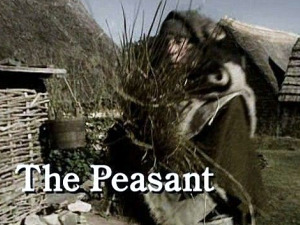Think Times Are Tough? Try The Recession Of 410-1100
Cheer up! Sure, you may be unemployed. The bank may be close to foreclosing on your home. And other creditors are circling like vultures to make sure they get a piece of your hide before you declare bankruptcy or go underground. But at least you don’t have to deal with a complete collapse of all commerce, no infrastructure to speak of and the total loss of all skilled labor. Of course, as long as you weren’t covered in sh*t, you were probably doing OK.
According to FT:
In this year [410] Rome was sacked, and the empire gave up trying to defend Britain. While this marks the glorious beginnings of “English history”, as Anglo-Saxon barbarians began their inexorable conquest of lowland Britain, it was also the start of a recession that puts all recent crises in the shade. …
For about 300 years, from around AD 420, Britain’s economy functioned without coin.
Core manufacturing declined in a similar way. … From the early fifth century, and for about 250 years, the potter’s wheel – that most basic tool, which enables thin-walled and smoothly finished vessels to be made in bulk – disappeared altogether from Britain. The only pots remaining were shaped by hand, and fired, not in kilns as in Roman times, but in open ‘clamps’ (a smart word for a pile of pots in a bonfire). …
For two or three hundred years, beginning at the start of the fifth century, the economy of Britain reverted to levels not experienced since well before the Roman invasion of AD 43. The most startling features of the fifth-century crash are its suddenness and its scale. … It is impossible to say with any confidence when Britain finally returned to levels of economic complexity comparable to those of the highest point of Roman times, but it might be as late as around the year 1000 or 1100. If so, the post-Roman recession lasted for 600-700 years.
Before you start gloating, however, FT adds this little warning:
The more complex an economy is, the more fragile it is, and the more cataclysmic its disintegration can be. Our economy is, of course, in a different league of complexity to that of Roman Britain. Our pottery and metal goods are likely to have been made, not many miles away, but on the other side of the globe, while our main medium of exchange is electronic, and sometimes based on smoke and mirrors. If our economy ever truly collapses, the consequences will make fifth-century Britain seem like a picnic.
At least we won’t have to put up with demands for shrubbery as we make our way through our collapsed countryside.
Call this a recession? At least it isn’t the Dark Ages [FT.com via Business Insider]
Want more consumer news? Visit our parent organization, Consumer Reports, for the latest on scams, recalls, and other consumer issues.


